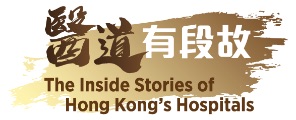
PWH - Through adversity comes strength
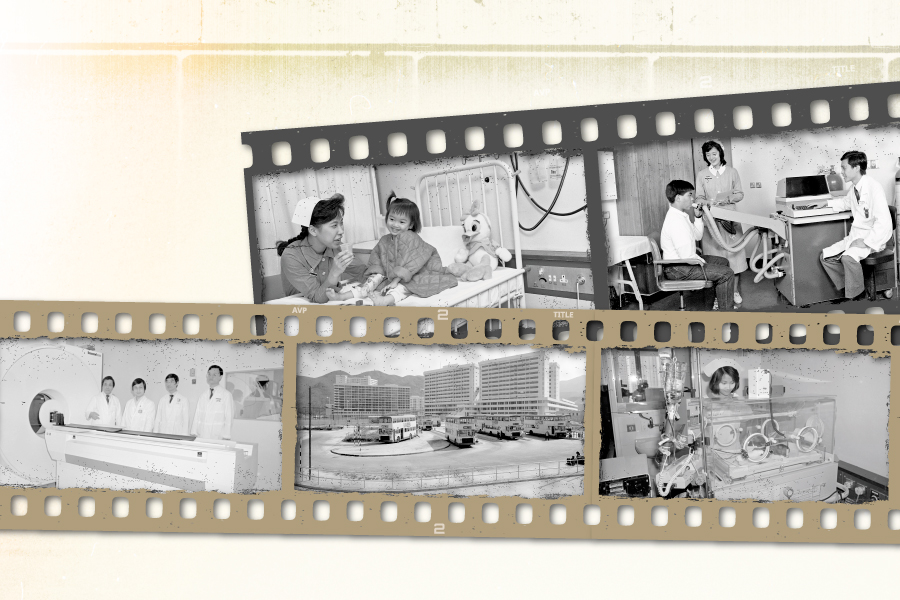 Prince of Wales Hospital (PWH) has experienced many historical moments since its establishment in 1984, and this year marks its 40th anniversary celebration. Reaching this milestone is no small feat. Let’s hear a few ‘PWHers’ as they recount their 40-year bond with the hospital.
Prince of Wales Hospital (PWH) has experienced many historical moments since its establishment in 1984, and this year marks its 40th anniversary celebration. Reaching this milestone is no small feat. Let’s hear a few ‘PWHers’ as they recount their 40-year bond with the hospital.
“I have had two kidney transplants at PWH and I go back every now and then for follow-up appointments. My children were also born here, so I feel like it is my second home,” says Maggie Ng with a warm smile. Maggie was diagnosed with end-stage renal failure in 1985 at the age of just 23 and urgently needed a kidney transplant. Thanks to one of her sisters, she received a new lease of life after a kidney transplant at the newly opened hospital. Because of its status as a teaching hospital, PWH has an atmosphere of vitality, Maggie believes. “As well as treating patients, healthcare professionals are also learning and growing at the same time, and the atmosphere on the wards is more lively and vivid which inspires my confidence in their ability to treat diseases,” she explains.
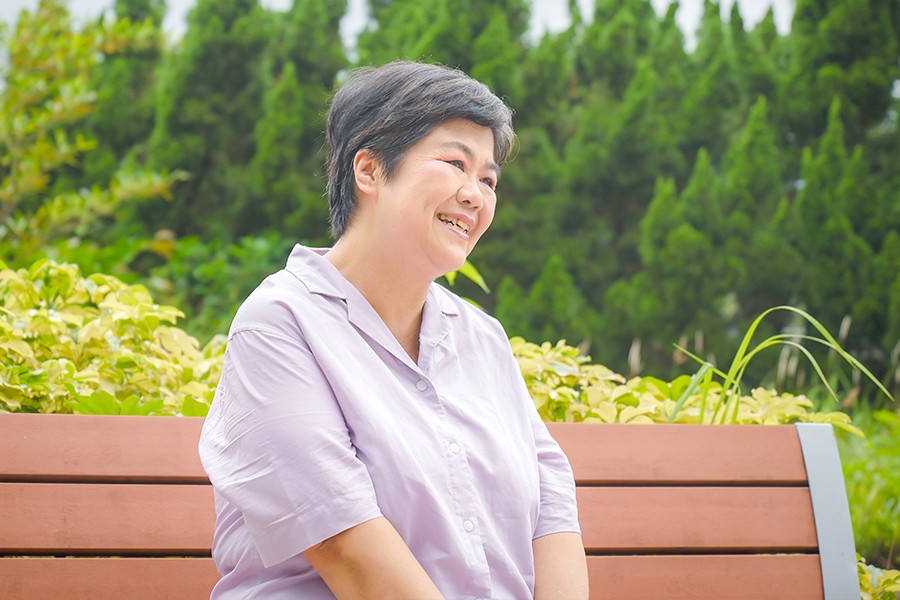 In early 2016, she fell ill again and her other sister donated a kidney to save her. Before the transplant, she had to undergo haemodialysis, or blood dialysis, but kept bleeding at the point where the needle was inserted. “If the bleeding had continued, the dialysis would have had to have stopped which would affect the transplant,” Maggie recalls. “There were two doctors who did not give up. They did not even have lunch and pressed on the wound for an hour until the bleeding stopped. The medical staff really cared for patients, especially chronic patients, and they treated me like a friend they had known for many years, which gave me a sense of security.”
In early 2016, she fell ill again and her other sister donated a kidney to save her. Before the transplant, she had to undergo haemodialysis, or blood dialysis, but kept bleeding at the point where the needle was inserted. “If the bleeding had continued, the dialysis would have had to have stopped which would affect the transplant,” Maggie recalls. “There were two doctors who did not give up. They did not even have lunch and pressed on the wound for an hour until the bleeding stopped. The medical staff really cared for patients, especially chronic patients, and they treated me like a friend they had known for many years, which gave me a sense of security.”
Senior Nursing Officer of the Central Nursing Division Liu Yat-wo attended the nursing school at the hospital in 1988 and joined the Department of Surgery after graduating. He modestly describes his work as ordinary but has in fact witnessed many landmark events, including the 2003 SARS outbreak that left Hong Kong an unforgettable memory. PWH frontline staff vividly remembered the crisis.
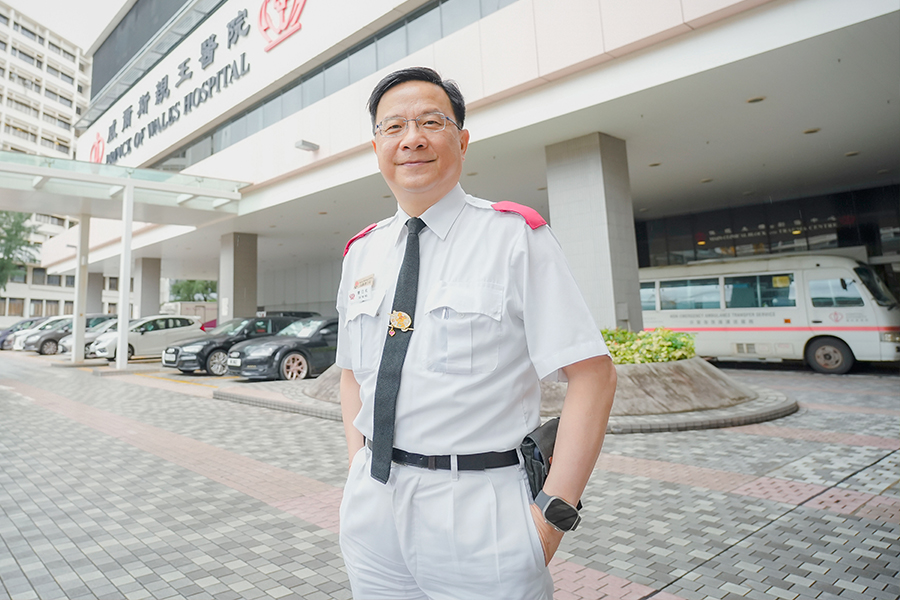 “My colleagues on Ward 8A fell ill one after another,” he recalls. “Although I was in the Department of Surgery, it felt like wartime and everyone in the hospital had to fight. So, I volunteered to join the battlefield, but unfortunately I fell ill a week after I started working on Ward 8A.” The infection became serious and spread to both Liu’s lungs, but he kept his condition secret even from his family when he was hospitalised and told anyone who phoned him that he was busy at work. “I felt I had a responsibility to take care of patients when I was in uniform, and when I saw my colleagues falling ill, I wanted to lend a helping hand,” he says. “When my condition worsened, I thought I would die, but I do not regret doing the right thing.”
“My colleagues on Ward 8A fell ill one after another,” he recalls. “Although I was in the Department of Surgery, it felt like wartime and everyone in the hospital had to fight. So, I volunteered to join the battlefield, but unfortunately I fell ill a week after I started working on Ward 8A.” The infection became serious and spread to both Liu’s lungs, but he kept his condition secret even from his family when he was hospitalised and told anyone who phoned him that he was busy at work. “I felt I had a responsibility to take care of patients when I was in uniform, and when I saw my colleagues falling ill, I wanted to lend a helping hand,” he says. “When my condition worsened, I thought I would die, but I do not regret doing the right thing.”
Liu transferred to the Central Nursing Division in 2018, the year a double-decker bus overturned on Tai Po Highway killing 19 people, most of the injured were sent to PWH for treatment. “On that day, I rushed to the A&E Department to see if there was anything I could do to help,” he remembers. “When I arrived, I realised colleagues from different specialties had rushed to A&E, and some even came back to help after work when they saw the news. It was a very touching scene.”
Deputy Hospital Chief Executive Dr Cheung Hon-ming joined the Department of Paediatrics in 1996 and recalls the challenges of handling the baby boom when pregnant mothers from the Mainland came to the hospital to give birth. “Every day, there were 20 to 30 women from Hong Kong and the Mainland waiting to give birth, and the medical staff kept going back and forth between the neonatal unit and the labour ward,” he says. “Some of the pregnant women had not undergone any obstetric examination, which increased the risk and difficulty of labour. It was a very stressful job, but with the support of the team, we were able to get through it.”
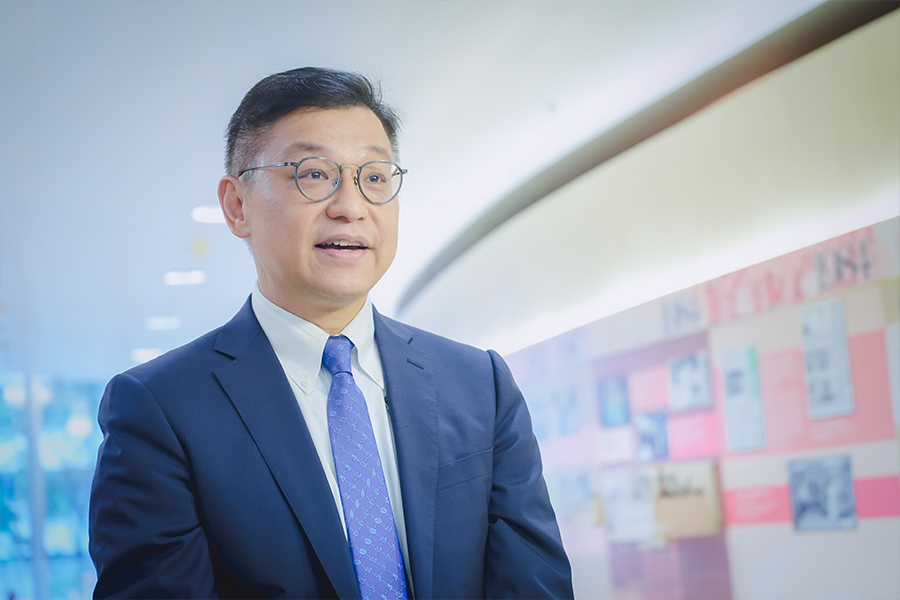 After 40 years of caring for the public, PWH is being redeveloped to cope with the increasing demand for healthcare services, and Dr Cheung is optimistic about the future. “We have been working closely with Faculty of Medicine at the Chinese University of Hong Kong to spearhead innovative research into clinical practice,” he explains. “We are grateful to our colleagues for their dedication in learning new techniques over the years and upholding the spirit of ‘we care, we serve’, always striving for the best treatment outcomes for our patients.”
After 40 years of caring for the public, PWH is being redeveloped to cope with the increasing demand for healthcare services, and Dr Cheung is optimistic about the future. “We have been working closely with Faculty of Medicine at the Chinese University of Hong Kong to spearhead innovative research into clinical practice,” he explains. “We are grateful to our colleagues for their dedication in learning new techniques over the years and upholding the spirit of ‘we care, we serve’, always striving for the best treatment outcomes for our patients.”